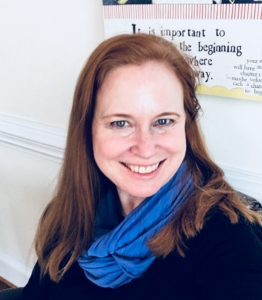Read Like an English Major
My daughter just graduated from college (a semester early, so my savings’ account thanks her dearly!), and now she is looking for a job. Since a lot of interviews take place over the phone for obvious reasons, I end up hearing snippets of her conversations. I’ve preached to her over the years that majoring in the liberal arts teaches you critical thinking skills, so when she’s asked what can a political science major “do” for an insurance firm, or a bank, or a communications firm…she has a ready answer.
Conversely, when people approach me with their books, or book ideas, they apologize in advance when they are not English majors. “I’m sorry—I didn’t study this in school.” I reassure them that you don’t need to be an English major to write a book. But it does help to act like one.
What do English majors do? We analyze how books work. One of my very earliest lessons of this in high school was, how were Hemingway’s books different from Fitzgerald’s? Which author did we prefer and why? A great Twitter thread (that I retweeted, from @literaticat) suggested that if you want to be a children’s book writer, go to the library and read 100 books in your genre from the last five years. “Tear them apart. Why and how do they work?”
Any writer, fiction or non-fiction, can benefit from reading current books that are being published in their genre. Ask, how do the authors I connect with handle structure? Is the book told linearly, by theme, through flashbacks, through different narrators? How are their characterizations, settings, dialogue, pacing, plotting working for you? Are certain methodologies in their writing rubbing you the wrong way, or instead, making you put down the book in awe, your jaw dropping, thinking, Wow, that was beautiful. And then give thought to, Why was it so beautiful?
So much changes in what’s considered “current,” so it pays to be reading in your genre, keeping up, not being old-fashioned. (Are adverbs out or in? What do dialogue tags look like in today’s books? How about…insert drumroll and much controversy and angst…the use of present or past tense!) While yes, it’s good to be you, you don’t want to be the only one who spends twenty pages on the description of an approach to a house, as I found to be true re-reading Jane Eyre and Anne of Green Gables. Back in the 1800s, we needed those descriptions as perhaps we’d never been to England or Prince Edward Island. But thanks to film, we know now what the terrain looks like, and can skip straight to the plot.
Have fun with this reading assignment, and don’t get intimidated by a specific number—just start reading in your genre with a more critical eye! It will make you a better writer, and you’ll be more knowledgeable about current trends.
ABOUT BETSY: Betsy Thorpe started in book publishing as an assistant at Atheneum, eventually becoming an acquiring and developmental editor while working at HarperCollins, Broadway Books (Random House), Macmillan, and John Wiley & Sons. She then started Betsy Thorpe Literary Services, which helps authors deliver their best work to the public, either through publishers or self-publishing. She is the co-author of numerous non-fiction books, including three featured in the New York Times, and is at work on her second novel, The Writer’s Cottage.
QUERY FOR SUCCESS: Learn how to write a professional and compelling query letter with Betsy in her upcoming class Query Letters for Novels and Memoirs on January 25, 2022 from 6-8PM in-person at Charlotte Lit. We’ll be discussing the essential five paragraphs that make up a query letter, including the elevator pitch, author bio, and the dreaded comparison books. We’ll take a look at some query letters that won the notice of agents, and those that were so awful they got posted online. More information here.
PLEASE NOTE: Proof of full Covid vaccination is required to attend in-person Charlotte Lit events. Send a pic of your vaccination card to staff@charlottelit.org.

